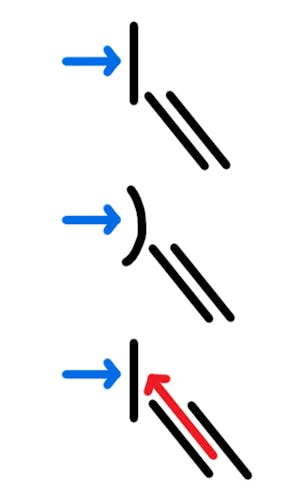Equalizing when Diving & Freediving: How to Avoid Ear Injury

My name is Ted Harty, and I'm the founder of Immersion Freediving and my new podcast Freedive Live. In this article, I'll cover the most common equalizing injury I've seen during my time as a freediving & scuba instructor and how you can avoid it.
I'm a Performance Freediving Instructor Trainer and a former USA Freediving record holder. My deepest freedive is 279ft, my longest breath-hold is 7 minutes, and I've done all this with a body built by beer, bourbon, and BBQ. I've appeared on the Discovery Channel with Tim Kennedy and have worked with the CEO of Twitter.
I've been involved in the freediving world as an instructor, athlete, and coach for over a decade. I'm excited to share my expertise through a series of articles I'll be writing for Divers Direct. Today I'll be discussing the most common equalizing problem in scuba and freediving. I’d be shocked if this has not happened to you multiple times.
To get started, raise your hand if you have ever come up from a dive and felt like there was water in your ear that wouldn't come out. Raise your hand if you have ever noticed that your hearing was muffled on the boat trip back to the dock. Raise your hand if you notice that it gets harder and harder to equalize if you go diving multiple days in a row. If I ask these questions to 100 people in a presentation, I expect to see 95 hands go up—the five that are not raising their hands are likely asleep. This issue is very widespread, it used to happen to me as a scuba instructor frequently, and the same mistake causes all three of the above symptoms.
I'd get back on the boat after a dive and could feel there was water stuck in my ear. So I’d start jumping around on one leg and banging the side of my head with my hand to try to get the water out—it didn't work. Well, I'm no dummy. I would then go to Walgreens and get swimmer's ear. It says "Gets the water out" right on the bottle. That wouldn't work. When I would go to bed, I'd think, "Ok, I'm gonna sleep with my clogged ear facing down so it will drain out overnight." That didn't work either. I also noticed that sometimes my hearing would feel muffled in one or both ears on the boat trip in like I had cotton in them. When this was happening, it would get harder and harder to equalize as I kept diving day after day.
What is it that’s causing this water-in-the-ear feeling?
I believe this is the most common ear injury out there, and most people don't even realize it's an injury. I sure didn't. When my students would come up after their open water session and complain about water in their ear that wouldn't come out, I'd give them a high five and say welcome to the club! Unfortunately, this is actually an injury to your ear. If you went to an Ear, Nose, & Throat doctor, they would put a scope in your ear, and they would see a lot of inflamed blood vessels in your eardrum. They would then likely tell you that you have Barotitis Media.
So this water in the ear feeling is likely an injury to your ear. Clearly we want to avoid any injury to our from happening in the first place. This is not normal and can be easily prevented. I suggest that if you feel like you have water in your ear that won't come out, or your hearing is muffled, go to an ENT and get it checked out. Then you can know for sure, and of course, follow their recommendations.
Why is this happening?

If I were to ask that same group of 100 people “When do you equalize?”, I would expect to hear almost everyone answer, when I feel pain or pressure in my ear. Let's look at what's going on when you equalize only after feeling pain or pressure. I've made some simple drawings to explain. While I have when you equalize only after feeling pain or pressure. I've made some simple drawings to explain. While I have many skills, clearly drawing is not one of them. When you dive underwater, the water pressure pushes in against your eardrum, seen in the top drawing. As you continue to descend, you’ll start to feel that familiar pain or pressure in the ears from that persisting water pressure, as seen in the middle drawing.
When you equalize your ears, you are pushing air through the Eustachian tube to balance out the pressure on the eardrums, and the eardrum goes back to normal, depicted in the bottom drawing. Remember, most all divers will say they equalize when they feel the pain or pressure. This means that their eardrums are constantly getting pushed in until it hurts. You equalize, which fixes it, and then moments later it happens again. This happens over and over throughout your dive session. It’s even worse for freedivers since they make more frequent ascents and descents.
Eventually, your body says, "Hey! You suck at this, you should never let my eardrum bend in like this, and you keep doing it over and over and over!" So at this point, the body decides to take care of the situation itself since you are not handling it correctly. The body then fills the eardrum with fluid, aka blood, in an attempt to stop that eardrum from bending in so easily.
When I was banging my hand against the side of my head and sleeping with my ear down, the reason these methods didn't work was because there was no water in my ear (not in the way I thought anyway). There was blood in my tympanic membrane, which is why I couldn't get the "water" out. If this happens to you, rather than facing the affected ear down when you go to sleep at night, you should face that ear up so that the blood can drain down and out of the Eustachian tube.
How can you prevent this from happening to you? The answer is so simple that people often ignore this advice, and you’ve probably heard the cure to this problem multiple times.
Equalize early and often
In other words, equalize before you feel pain or pressure. Even on my deepest freedive to 279ft, I felt zero pain or pressure in my ears. How is that possible? The answer is easy. I am equalizing every other kick. How can I feel any pain or pressure when I equalize that often? The next time you hit the water, equalize more frequently, before you feel pain or pressure, and make this your new habit. This "simple" technique is a game-changer for many of my students.
Now, if you are a freediver as opposed to a scuba diver, I have one additional tip. When I watch a typical freediver or spearo descend, they, like scuba divers, pinch their nose and equalize. Then they put that equalizing hand over their head. When they need to equalize again, they bring that hand from over their head back to the nose. After they equalize again, they let that hand go down by their side, but once again, they need to equalize, so they bring it back to the nose. This is one of my biggest pet peeves. It drives me crazy!
Why are you moving your hand all over the place? Are you trying to burn extra calories doing the hand dance? This is a waste of energy and makes it more difficult to equalize as frequently as you need to. When you equalize your ears, keep your hand on your nose pocket. You know you will have to equalize again, so just keep it there, especially now that you will be equalizing more frequently, right?
I just gave you some great advice, but I know from years of teaching that some of you may likely implement this advice incorrectly. Many students will hear me say this and think, "Ted said equalize all the time, so that's what I'm gonna do." Then, they keep their nose pinched the entire dive so they can focus on equalizing. This is a problem because now you can't equalize your mask since your nose is pinched the whole time. Notice I said to keep your hand on your nose pocket the entire dive, not pinch your nose the entire dive. This way, you can squeeze your nose to equalize and then let go and equalize your mask whenever you need.
Now, before you go self-diagnosing yourself with Barotitis Media, know that it is possible to get water in your ear, but that typically comes out quite easily. I know on a few occasions I've had water trapped behind some ear wax, and it creates a similar sensation, but at this point I can tell the difference. In my experience, most people who complain about water in the ear have this ear injury rather than having actual water in the ear canal. As I said earlier, I suggest that if you feel like you have water in your ear that won't come out, or your hearing is muffled, go to an ENT and get it checked out. Then you can know for sure, and of course, follow their recommendations.
I hope you found this article helpful. My next one will be on even more common equalizing problems. If you can't wait, I have a podcast episode where I cover these common equalizing mistakes at.
If you want to learn more about freediving, you can listen to my podcast, Freedive Live, at Freedive Live or on your favorite podcast service. If you want to take a deep dive and learn even more from me, I have many online freediving courses. They cover a variety of topics such as equalization for freediving, breath-hold secrets, and an at-home freediving workout plan. You can view them all at www.onlineclasses.ImmersionFreediving.com.
Dive safely out there. It’s not as hard as you think, especially when you can learn for free at www.FreedivingSafety.com
Ted Harty - your trusted online freediving resource